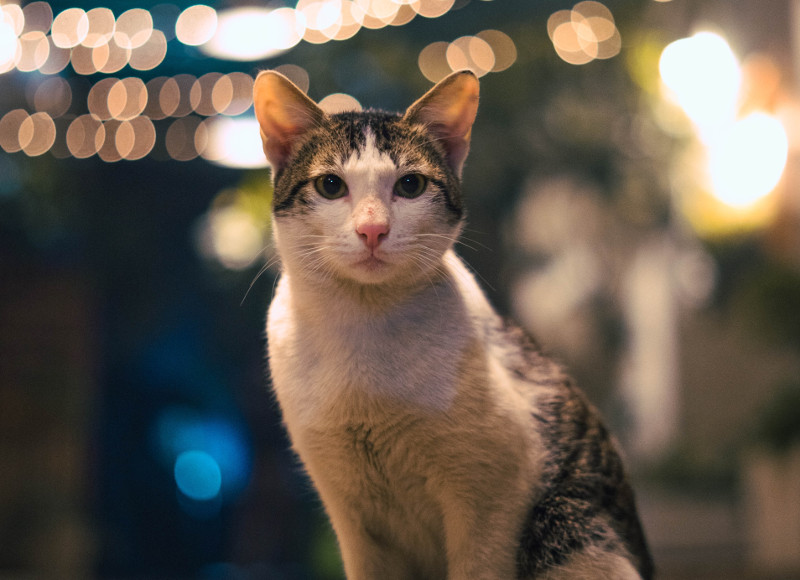Anyone who has shared a home with cats knows how energetic they can be – especially during the least convenient times, like early in the morning or late in the evening. As referred to by many in the cat community as the ‘witching hours’, cats seem to be most lively during these times. Many believe this is due to cats being nocturnal creatures, and while this common assumption is somewhat accurate, domesticated felines are actually classified as something else.
Believe it or not, cats are neither nocturnal (active at night) nor diurnal (active during the day). Technically, cats are situated right in the middle, and are what’s known as crepuscular. This means they’re awake (at times) throughout both day and night, but are most active during dusk and dawn.
House cats are extraordinary predators, able to catch prey of all shapes and sizes with ease when given the chance. But because of their small size, they’re also apt to become the prey themselves. Medium to large size animals such as coyotes, wolves, and certain large birds of prey are the most common outdoor threats, depending on where you live.
Most animals that would hunt domesticated cats are either nocturnal or diurnal, giving cats good reason to be less active during these times. However, the twilight hours of dusk and dawn are a much less vulnerable time for cats to hunt. Of course, this also means your cat feels the safest playing, exercising, and being an absolute goofball during this time.
Cats can see well during both day and night. However, the hours when the sun is just about to come up, or has just moved below the horizon, their sight is utterly outstanding. This is due to the design of their eyes, including their slit-like shape, and the fact that cats have much larger pupils and corneas than humans – about 50% more. This allows much more light into their eyes, unlocking their night vision super powers. This is another reason why cats are so active during dusk and dawn.
It’s important to keep in mind that being the most active during these times is very natural for your cat, so it is better to embrace it than try to discourage their behaviour. Discouraging your cat from playing at times that are most biologically appropriate could have a very negative effect on their mental and physical health. This may lead to unwanted behavioural problems, like peeing around the house or pooping outside of the litter box, among other things.
If your cat is keeping you awake at night, consider the following options:
- Feed your cats right before you go to bed, as most cats are keen to nap after a big meal.
- Spend extra time in the evenings playing with your cat, to wear off excess energy.
- Ignore your cat once you go to bed; even chasing them out of the room can feel like a reward for playing, as it gives them extra attention.
- Keep them in a closed-off area when you’re sleeping, such as a basement or spare room. Be sure to leave food, fresh water, a clean litter box, and toys readily available.
- Provide extra enrichment activities, like snuffle mats, treat puzzles, frozen stuffable toys, and more. These activities will provide long-lasting entertainment that can be repeated over and over.
While it has long been a popular myth that cats are nocturnal, we now know that they are crepuscular and prefer to be active during dusk and dawn. Although at times their behaviour may be considered annoying or inconvenient, we wouldn’t trade these unique furry companions for anything in the world.
Brandon Forder, known as The Pet Expert, is vice-president of Canadian Pet Connection, an industry leader in healthy pet lifestyles. Brandon is certified in pet nutrition, and has more than twenty-five years’ experience specializing in pet health and behaviour. He has written hundreds of informative pet-related articles for newspapers, magazines, radio, and the popular Ask the Pet Expert Blog. Brandon is highly skilled in pet problem solving, and enjoys teaching others about smart and responsible pet ownership. To learn more, visit www.CanadianPetConnection.ca.












